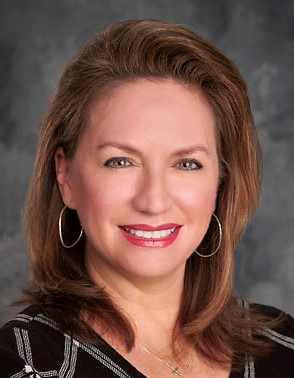Understanding Professional Liability With Dr. Cynthia MacKenzie

When Dr. Cynthia MacKenzie had an opportunity to work with thoroughbred horses at the prestigious Lane’s End Farm in Kentucky, she took it. As an equine practitioner, taking care of roughly 700 horses was a dream job, but assuming responsibility for the animals’ welfare also came with unexpected risks.
Some of the stallions under MacKenzie’s care were worth up to $20 million, yet her liability insurance only covered up to $6 million in the event of an at-fault medical error. That meant she could potentially be on the line for $14 million — much more than she could afford, even with a well-paying job.
While MacKenzie ultimately didn’t make a $20 million dollar mistake, veterinary malpractice became a significant part of her life when she took a job with the Professional Liability Insurance Trust (PLIT), which provides insurance to veterinary members of the American Veterinary Medical Association (AVMA). In a presentation at Utah State, MacKenzie talked to students in the School of Veterinary Medicine about some of the legal hurdles veterinarians face.
Professional liability insurance protects against negligent mistakes made on the job. For instance, if a veterinarian fails to fully remove a dog’s tooth and that failure leads to an infection, the doctor is legally responsible for the cost of that mistake. Professional liability insurance provides the pet owner — not the doctor — with the money to make things right when a medical error occurs.
“The policy is there to make a pet owner whole again,” MacKenzie explained.
While professional liability may seem straightforward, it gets complicated fast. What counts as a reasonable level of care can vary from state to state and even between rural and urban areas.
Determining fault is also tricky. A veterinarian who leaves a client alone with their dog as it wakes up from anesthesia would be liable if the dog then attacked the owner, as it was their responsibility to oversee treatment. But if a veterinary technician was assigned to supervise the dog and then left the dog alone with client, the incident might fall under the practice owner’s insurance.
Because of the potential consequences veterinarians face, professional liability can be scary. However, just keeping a record that they followed best practices offers veterinarians some protection.
“If it wasn't written down, it didn't happen,” MacKenzie said. “I know it can be crazy in your first position, but you should reserve time for learning how to keep great medical records and honing your communication skills.”
Communication with owners can help manage expectations and end complaints before they begin. Sixty-five percent of PLIT’s claims are estimated to be connected to a breakdown in communication, and MacKenzie suspects the full number is higher. And even when a mistake has clearly been made, honesty can help to maintain goodwill.
“I made a mistake when I was at Lane's End,” said MacKenzie. “I went straight to the farm owner and explained that I missed a lesion on a radiograph for a $40,000 horse. I said I was willing to pay back the $40,000, that I made a mistake, and I was sorry. And they said, ‘You know what? We appreciate the fact that you apologized.’ So don't underestimate an empathetic apology.”
While professional integrity and diligence can do a lot to keep veterinarians out of legal trouble, there’s still no better protection than insurance.
“When looking at your first job offer,” MacKenzie said, “remember to consider more than just your salary and days off. If they pay for liability insurance, ask them how much. And if they only cover $100,000 of your liability but you would feel more comfortable with a million, ask to pay the difference yourself. For example, with PLIT, it's $55 a year for that level of difference for a small animal veterinarian.”
Even though students at the School of Veterinary Medicine haven’t graduated, they are potentially liable when working on animals. Fortunately, they can receive both professional liability and life insurance through the AVMA Trust at no additional cost by becoming members of the Student American Veterinary Medical Association.

